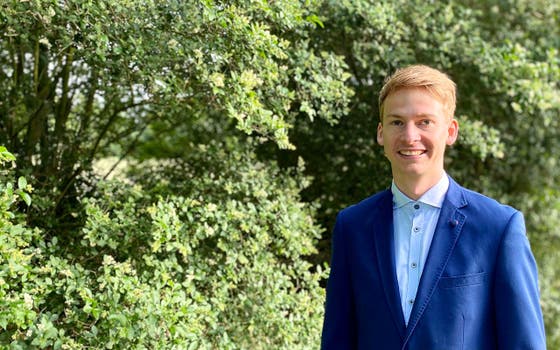Brain maturation in congenital heart defects

Better treatment is enabling doctors to save the lives of an increasing number of newborn babies with serious congenital heart defects. But the risk of brain problems in these babies is high. Until now little attention has been paid to these problems. PhD candidate Raymond Stegeman of UMC Utrecht has carried out extensive research into the brain development of these young heart patients. He will receive his doctorate on 23 June.
Together with a European research team, Raymond Stegeman developed a uniform definition for interpreting brain damage in an unambiguous manner. With the Utrecht team and the Dutch pediatric cardiac centers, he set up a large-scale study to limit brain damage in children with a congenital heart defect using the medicine Allopurinol. The aim: a better quality of life.
Every year 300 children in The Netherlands are born with a serious congenital heart defect. These patients must endure heart surgery shortly after birth. This is very radical, but despite this, almost 90 percent of these children reach adulthood today. However, they often experience developmental problems due to brain damage. For example, they have a language/speech delay, or problems with motor skills, behavior or learning. "This kind of brain damage is caused by moments with insufficient supply of blood and oxygen to the brain," explains PhD student Raymond Stegeman of UMC Utrecht. "This can be due to the heart defect itself combined with several critical moments around birth and heart surgery."
Interaction
In recent years, Stegeman has been studying the interaction between the heart and brain in this group of patients. In his thesis, he presents several important conclusions and recommendations for the future. For example, he studied the risk factors in children with a congenital heart defect, which has led to a clearer picture of which babies have a greater risk of brain damage. These include the type of heart defect, the method of delivery, age and temperature during heart surgery and type of intervention/operation. "Knowing which children are at increased risk and when is very important," says Professor of Neonatology Manon Benders, from UMC Utrecht. "Based on these insights, we can adjust our treatments so that we can improve the development of children with a congenital heart defect."
PhD student Stegeman also described a definition that allows doctors around the world to interpret brain damage in the same way. "We mapped brain damage before and after heart surgery with the European 'ABC Consortium', an international collaboration between the academic centers of London, Zurich, Giessen, Munich and Utrecht," says the young researcher. "If all doctors assess brain damage in the same way, we can look even more closely at-risk factors, new treatments and outcomes. In Utrecht, an MRI scan of the brain has already been made at three times since 2016: before birth, before and after heart surgery. If that becomes the standard nationally, or perhaps even internationally, it could ultimately lead to better outcomes."
Medicine
There are also prospects for treatment or prevention of brain damage, for example in the form of new medicines. Stegeman conducted a literature study to find out which existing drug could reduce brain damage. The drug Allopurinol emerged. "Allopurinol traps harmful substances that arise when there is an insufficient supply of blood and oxygen to the brain." UMC Utrecht, together with UMC Groningen, Erasmus MC Rotterdam and Radboudumc Nijmegen, is conducting a large-scale third phase study on the effect of Allopurinol in reducing brain damage. "For this 'CRUCIAL trial' we have obtained a grant of 1.7 million euros from ZonMw and Stichting Hartekind".
On Thursday 23 June, UMC Utrecht will organize an international symposium entitled 'Neonatal Cardiac Disease: The Interplay between Heart and Brain', with experts from the Netherlands and abroad. "The aim of the symposium is to draw attention to the interaction between the heart and the brain in children with a congenital heart defect", says Professor Benders. "We also want to stimulate national and international cooperation in this field." After the symposium, at the end of the afternoon, Raymond Stegeman will defend his thesis.
